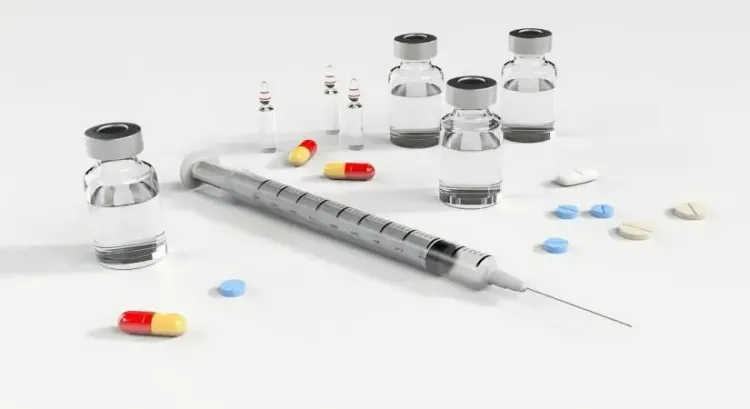Could a New Weekly Injection Revolutionize Parkinson's Treatment?

Synopsis
Key Takeaways
- Once-a-week injectable significantly reduces pill burden.
- Developed by a team of scientists from UniSA.
- Delivers consistent levels of levodopa and carbidopa.
- Utilizes a biodegradable polymer for controlled release.
- May be applicable to other chronic conditions.
New Delhi, July 12 (NationPress) - A group of researchers in Australia, spearheaded by scientists of Indian descent, has pioneered a groundbreaking injectable treatment that can be administered once a week. This innovative drug has the potential to greatly enhance the quality of life for over eight million individuals afflicted with Parkinson's disease, potentially eliminating the necessity for multiple daily pills.
Managing frequent doses can be particularly challenging, especially for older patients or those experiencing difficulties with swallowing, resulting in erratic medication levels, increased side effects, and diminished drug efficacy.
In response to this issue, the research team from the University of South Australia (UniSA) has created a long-lasting injectable formulation designed to provide a consistent dose of levodopa and carbidopa—two essential medications for Parkinson's—over an entire week.
This biodegradable formulation is injected either subcutaneously or into muscle tissue, allowing for a gradual release of the medication throughout the week, as highlighted in their study published in the journal Drug Delivery and Translational Research.
The newly formulated injectable has the potential to significantly enhance treatment outcomes and patient adherence, stated lead researcher Professor Sanjay Garg from UniSA's Center for Pharmaceutical Innovation.
"Our objective was to create a formulation that simplifies treatment, boosts patient compliance, and maintains stable therapeutic levels of medication. This weekly injection could revolutionize Parkinson's care," Garg remarked.
"Levodopa is recognized as the gold standard treatment for Parkinson's, yet its short duration necessitates multiple daily doses."
The injectable gel employs a US FDA-approved biodegradable polymer, PLGA, combined with Eudragit L-100, a pH-sensitive polymer, to facilitate controlled and sustained drug release.
The researchers observed that the consistent release of both levodopa and carbidopa over a week could help maintain stable plasma levels, thereby minimizing the risks associated with fluctuating drug concentrations.
Comprehensive laboratory studies validated the system's effectiveness and safety, revealing that over 90 percent of the levodopa dose and more than 81 percent of the carbidopa dose were released within the seven-day period.
Remarkably, the implant degraded by more than 80 percent within a week and demonstrated no significant toxicity in cell viability assessments.
Moreover, the formulation can be easily administered using a fine 22-gauge needle, reducing discomfort and removing the need for surgical implantation.
Garg also noted that this technology could be adapted for various chronic conditions, including cancer, diabetes, neurodegenerative disorders, pain management, and chronic infections requiring long-term drug delivery.









